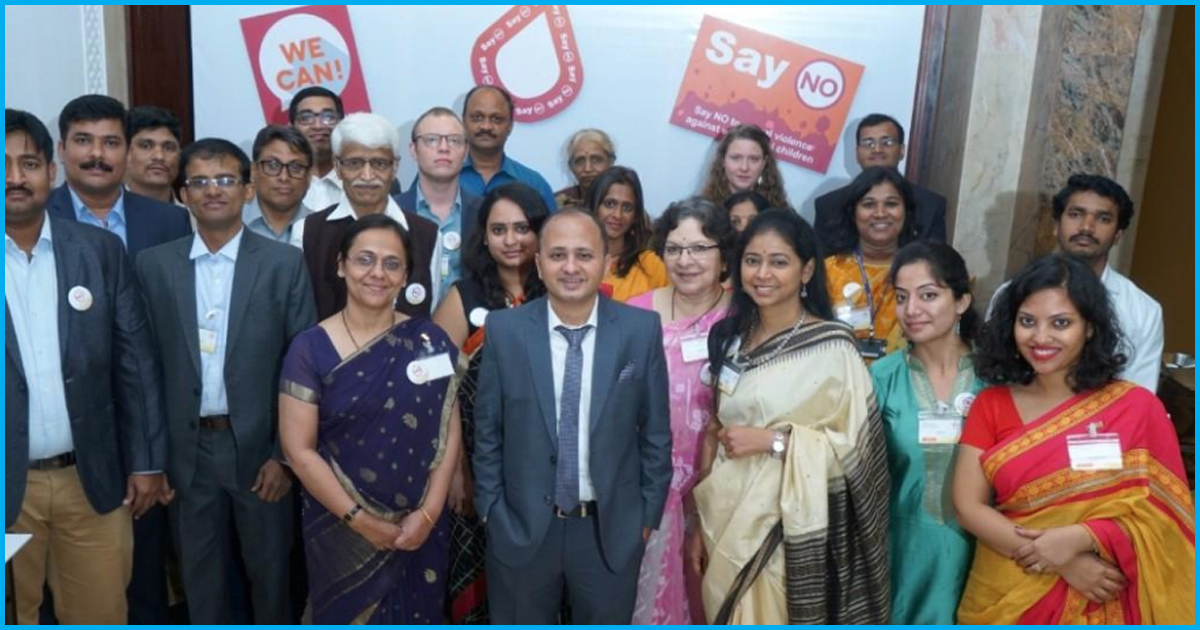
Path Of A Pioneer - Incubation Of A Social Innovation
28 Dec 2018 3:02 PM GMT
A group is sitting around a table. The location is the prestigious King Edward Memorial Research Centre (KEMHRC) Pune. The group is an eclectic one, an intellectual one, a transnational one…
Dr Laila Garda, Dr Klaus Beier, Dr Varsha Toll, Dr Vasudev Parlikar, Ananda UVL and chair of the meeting Suhas Joshi.
Worried frowns crease their foreheads. The afternoon is warm; tempers are soaring…
In their midst is a laptop on which is an online version of a popular newspaper website. The website carries an interview of Dr.Beier, highlighting the need to focus on preventing potential offenders from offending in the first place. By providing therapeutic support for adults and adolescents with a sexual preference for children – paedophiles– and/or early adolescents – hebephiles the approach aims to detect risk early and prevent potential offenders from ever offending.
But sadly, the article has attracted caustic remarks from the general public. “Paedos should be put to death,” says a comment.
“Paedophiles do not deserve any mercy,” says another.
“Such comments are not surprising considering the high amount of stigma and taboo to discuss sexual matters in our culture,” says Dr Parlikar.

“The Berlin Prevention Project Dunkelfeld (PPD) Germany is one such initiative that aims to prevent Child Sexual Abuse (CSA) by targeting men who are distressed by sexual fantasies involving children and fear they may sexually abuse children, and who seek help without being mandated to do so. As a society we also need to focus on preventing potential offenders from offending in the first place so it is important to focus on prevention through treatment,” says Dr Klaus Beier.
That is what Don’t Offend: India Network under PPPSV does. The problem:
Child Sexual Abuse (CSA) is a widespread global problem with grave life-long outcomes that affects not just the victim, but also the offender, the families and the communities that surround them. Globally there are 1.9 billion children i.e., 27% of the world population affected by CSA. In India, Ministry of Women and Child Development (MWCD) study done in 2007, has cited that 53.22% of Indian children have faced some form of sexual abuse.

CSA is an extensive problem and even the lowest prevalence includes a huge number of victims. Two main issues have been identified that makes it difficult to estimate exactly how many children are victims of CSA. Firstly, the way abuse is defined plays an important role. Secondly, the cases reported by the official organizations usually underrate the number of victims as many cases never get reported.
There are many complicated circumstances surrounding the issue of CSA in India. A forbidding silence is at the root of this bane fueled by fear of indignity, denial from the community, social stigma, and gap in communication between parents and children about this issue. Many instances of CSA don’t include penetrant sex, victims usually clean themselves following attack, and hence the medical investigation does not provide any evidence of sexual assault.
Their project: The group has successfully launched the Program for Primary Prevention of Sexual Violence (PPPSV) in India. A collaborative initiative of King Edward Memorial Hospital Research Centre, Pune, Berlin Institute of Sexology at the Charité, Bayer group in India and an advisory council of experts from India, the objective of PPPSV project is to focus on prevention by treatment strictly to non-offending paedophiles.
So how did they manage to solve the problem of public emotions from running high about their project?
What was their solution?
Watch an inspiring documentary – Path of Pioneer — on Zee Business on January 26th at 6.30 PM for all the answers….
 All section
All section













